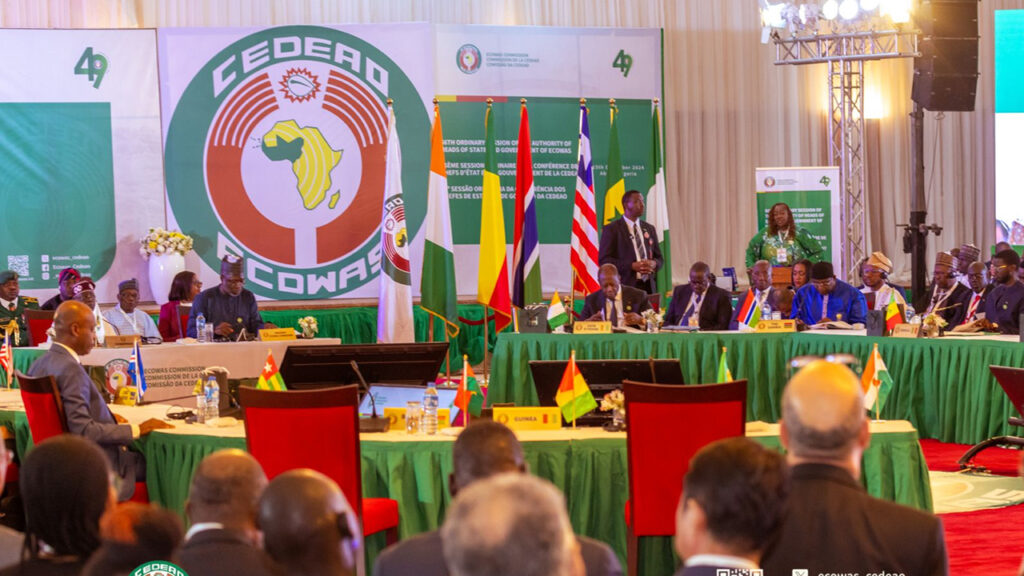The Economic Community of West African States (ECOWAS) has unveiled plans to establish a 260,000-strong rapid deployment counter-terrorism brigade, requiring an annual budget of $2.5 billion.
The President of the ECOWAS Commission, Omar Touray, disclosed this during the 2025 African Chiefs of Defence Staff Summit in Abuja, themed “Combating Contemporary Threats to Regional Peace and Security in Africa: The Role of Strategic Defence Collaboration.”
Represented by the ECOWAS Commissioner for Political Affairs, Peace and Security, Ambassador Abdel-Fatau Musah, Touray said the funds would support the activation of the force, logistics provision, and financial assistance to frontline states battling terrorism.
He stressed that the Sahel region has become the epicentre of global terrorism, accounting for 51 per cent of terrorism-related deaths worldwide in 2024, adding that urgent and coordinated action is required to confront the threats.
“On the directive of ECOWAS Heads of Government, the organisation is in the process of activating a 260,000 rapid deployment counter-terrorism brigade. While ECOWAS remains committed to raising its 5,000-man brigade under the African Peace and Security Architecture, the need for this larger rapid deployment force has become unavoidable,” Touray said.
He further revealed that ECOWAS Ministers of Finance and Defence would meet in Abuja this Friday to agree on modalities for raising the $2.5bn annual funding. He also called on bilateral and multilateral partners, including the United Nations, to support the initiative.
Beyond counter-terrorism, ECOWAS is working to operationalise its integrated maritime security strategy with three regional maritime centres and an international coordinating hub in Abuja to combat transnational organised crime.
Former Nigerian Minister of External Affairs, Professor Ibrahim Gambari, also speaking at the summit, warned that Africa is contending with over 1,000 insurgent groups. He urged African nations to strengthen indigenous defence industries and technologies to reduce reliance on external powers.
Nigeria’s Chief of Defence Staff, General Christopher Musa, emphasised the need for stronger regional collaboration, warning that Africa’s opportunities are being undermined by terrorism, violent extremism, piracy, and the effects of climate change on conflict.
Musa stressed that modern threats extend beyond traditional battlefields into cyberspace, urging investment in cyber defence, artificial intelligence, and indigenous military technology.
“These challenges know no borders and demand a unified, strategic response. Let us rise above division and build a continent where our people can live free from fear,” he said.
The summit highlighted the urgency of regional cooperation, technological innovation, and sustainable financing in confronting Africa’s evolving security challenges.



